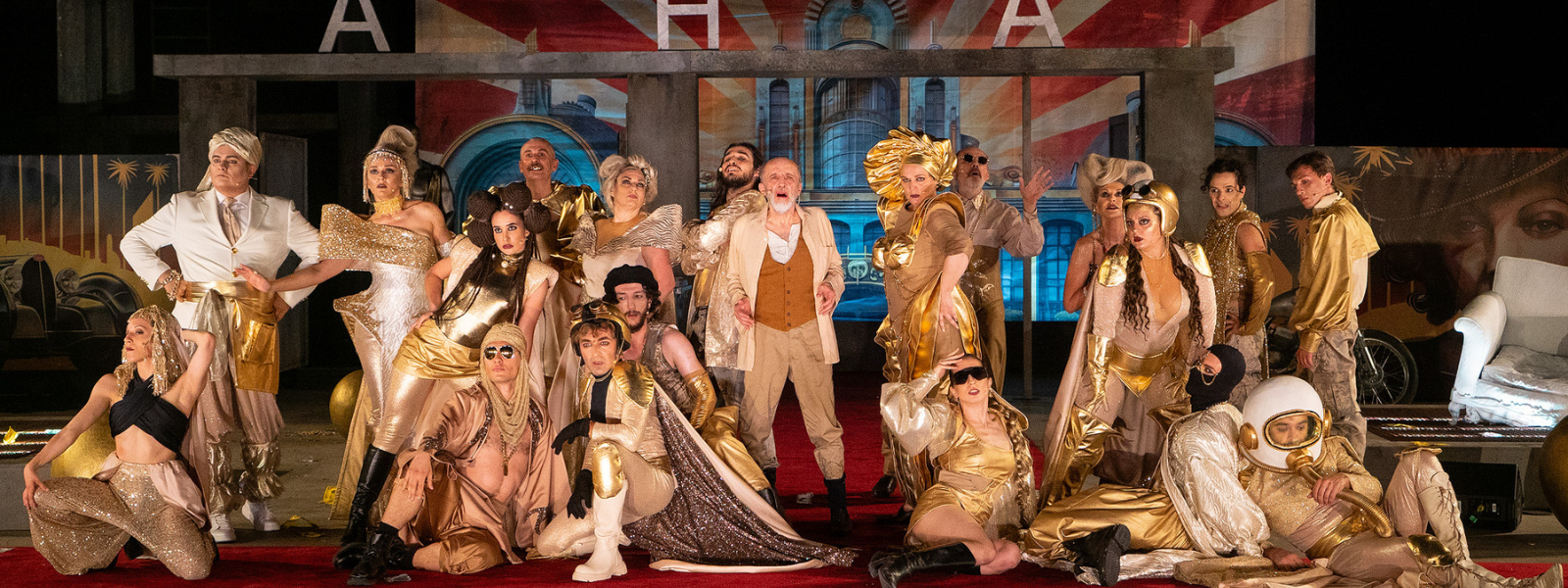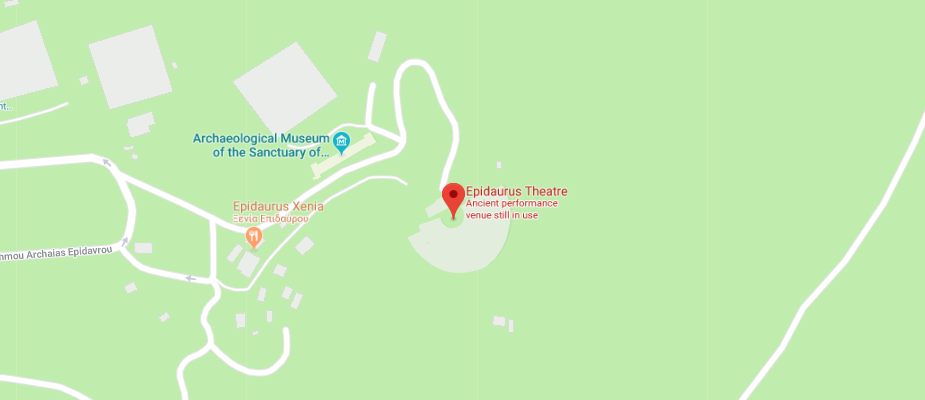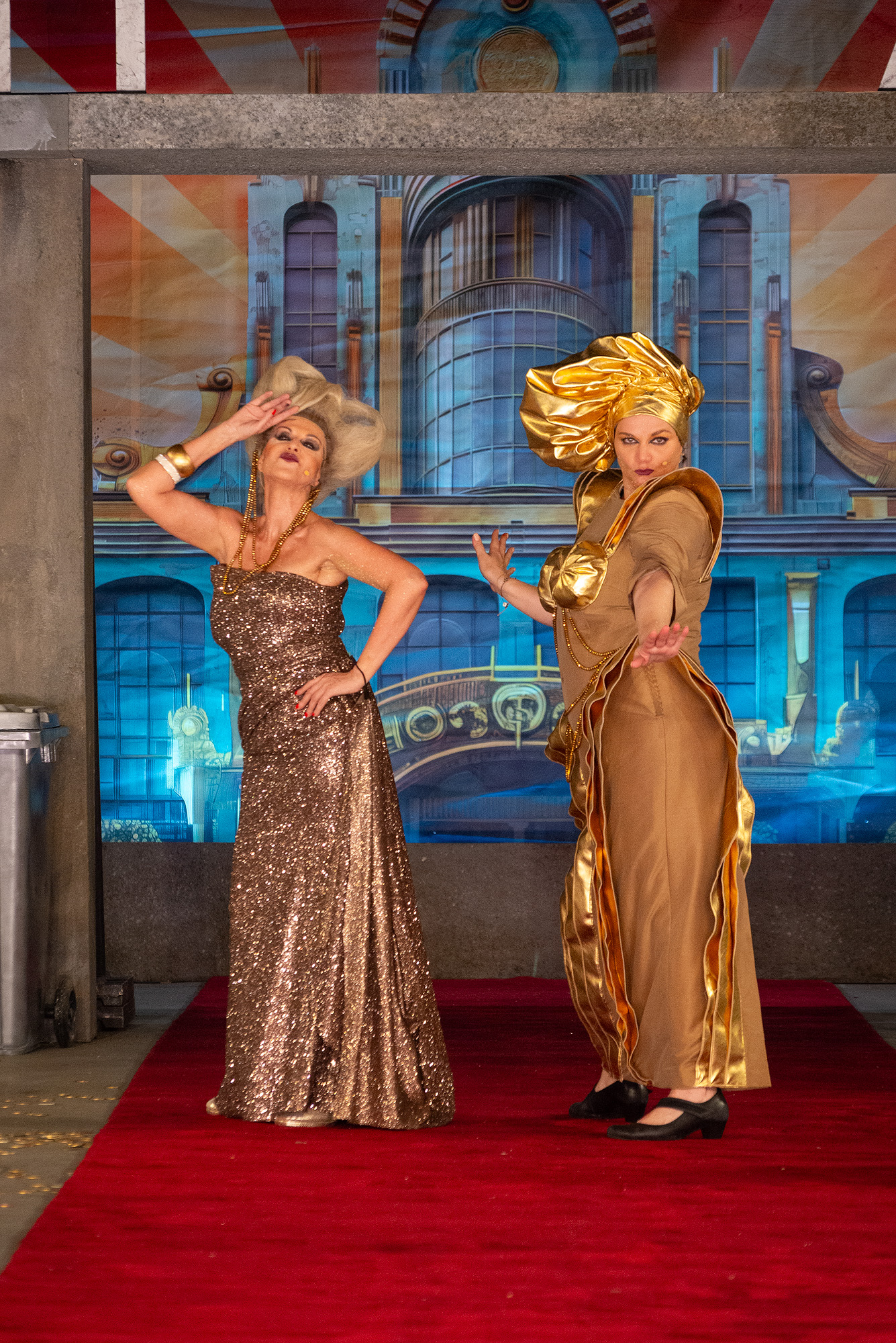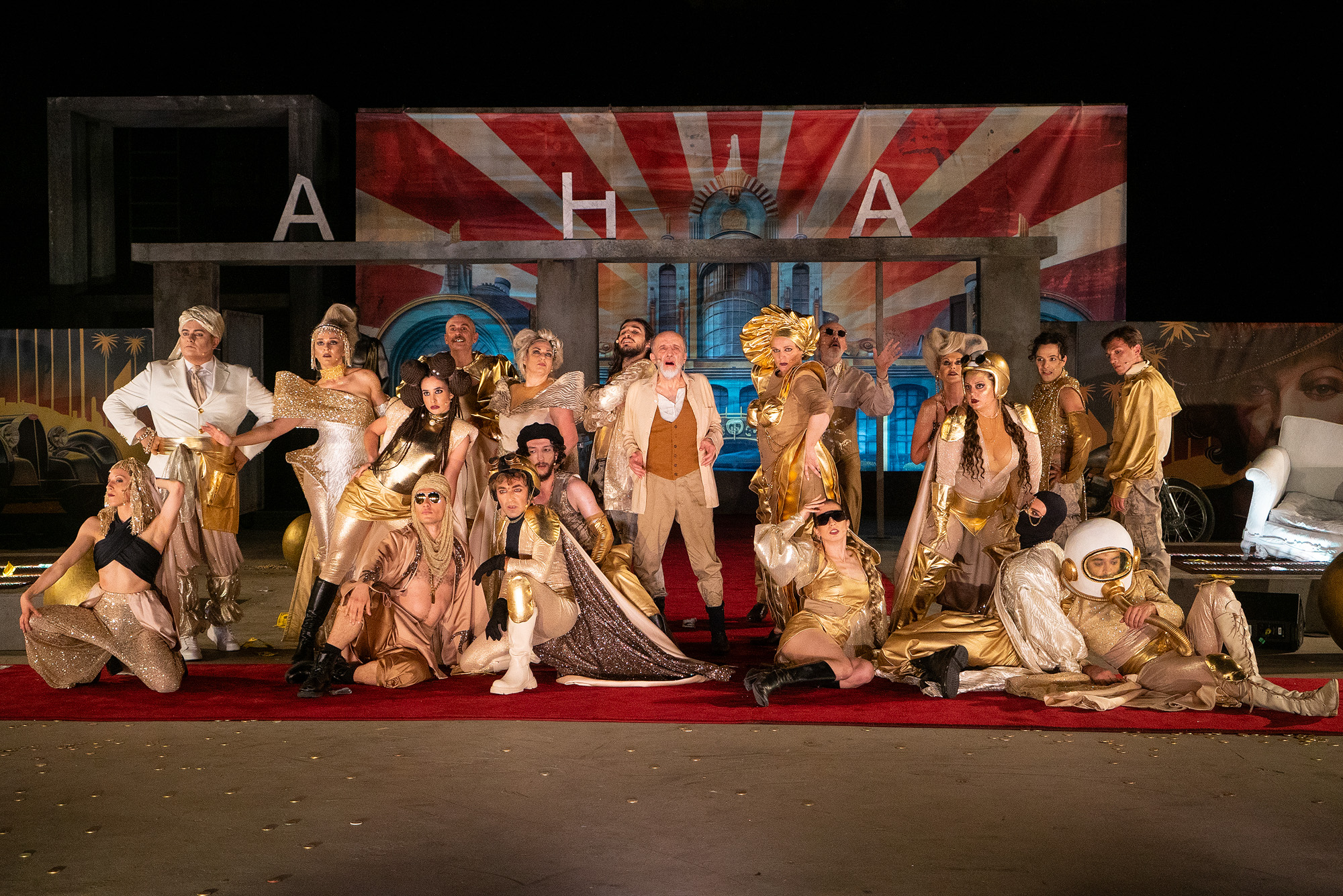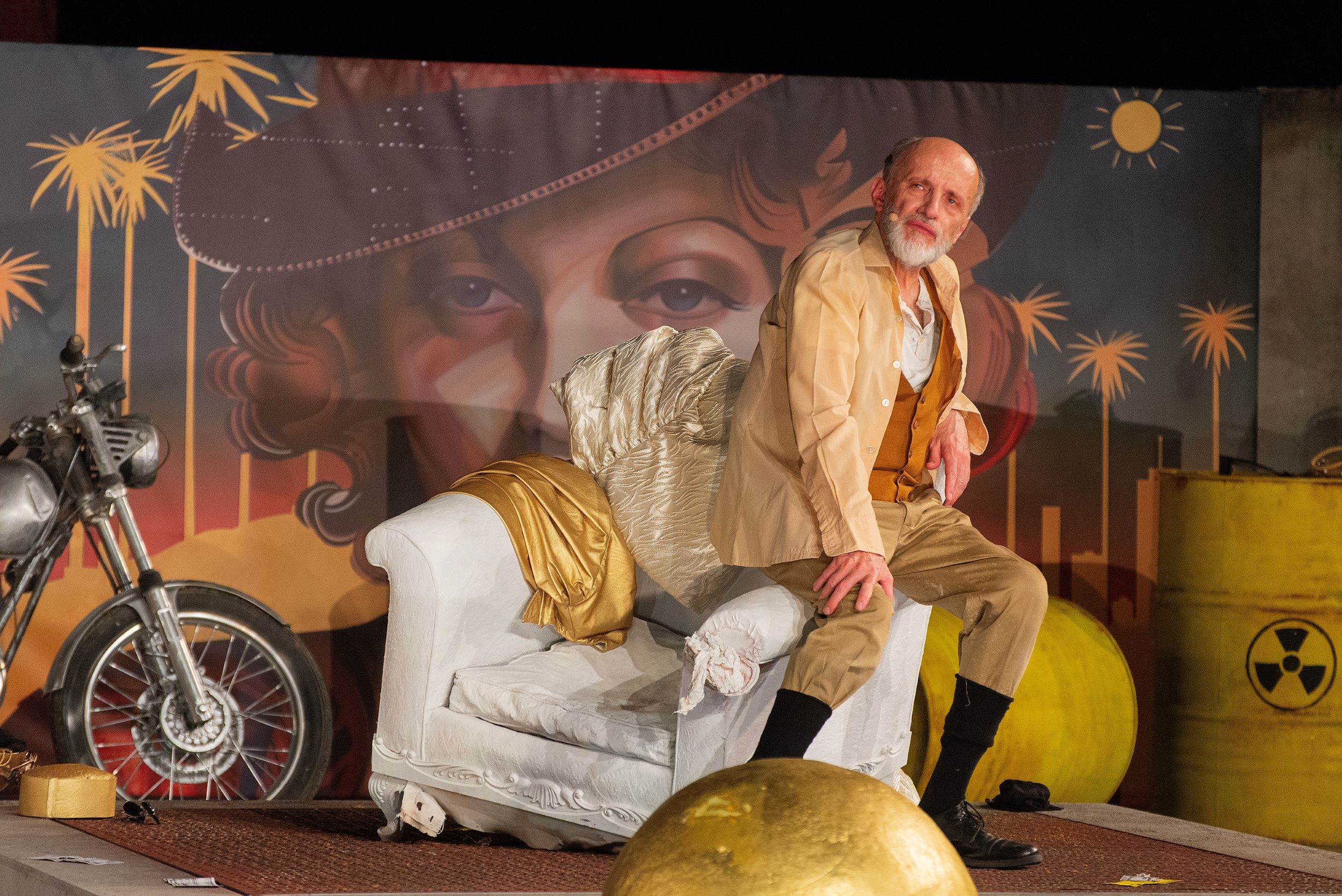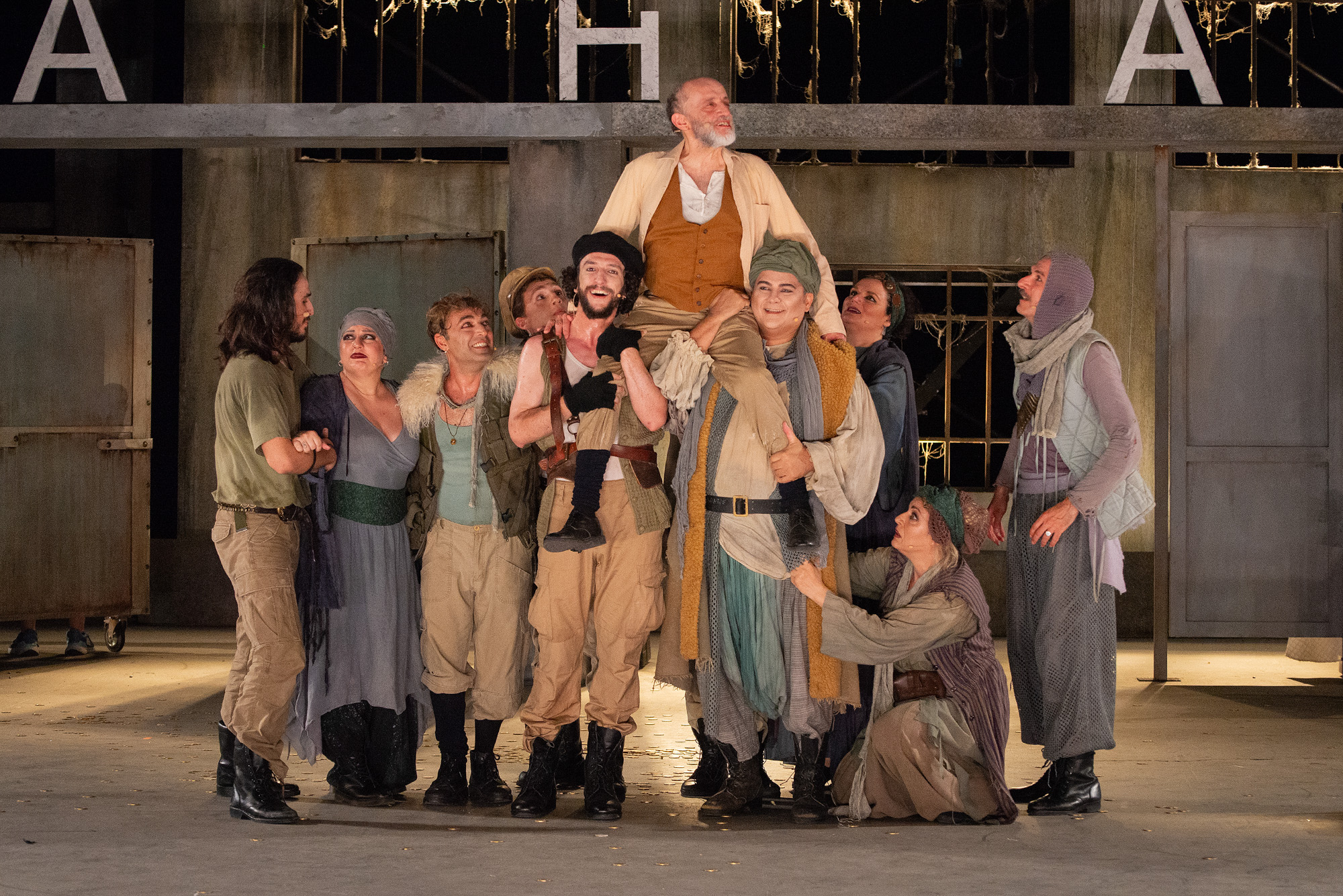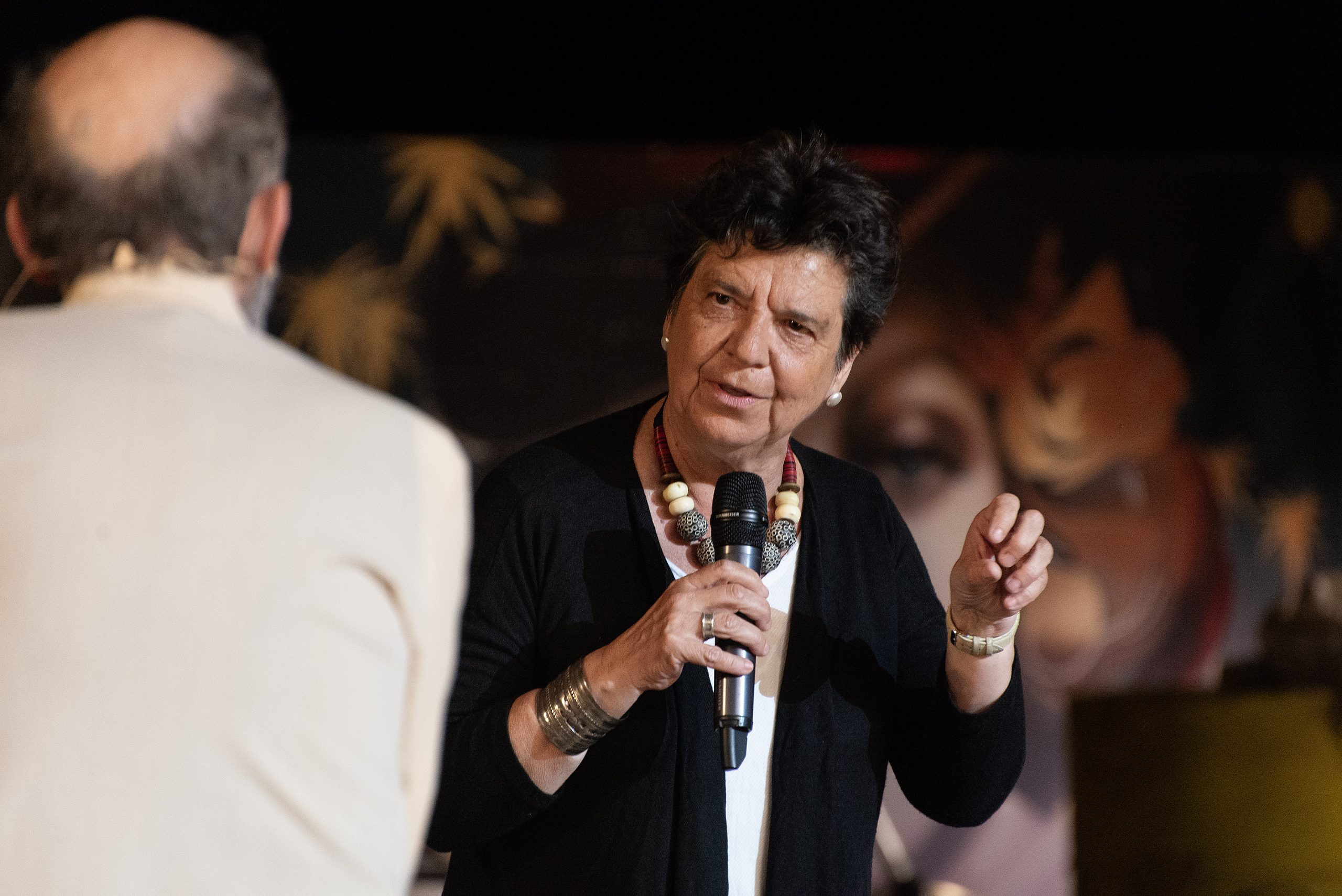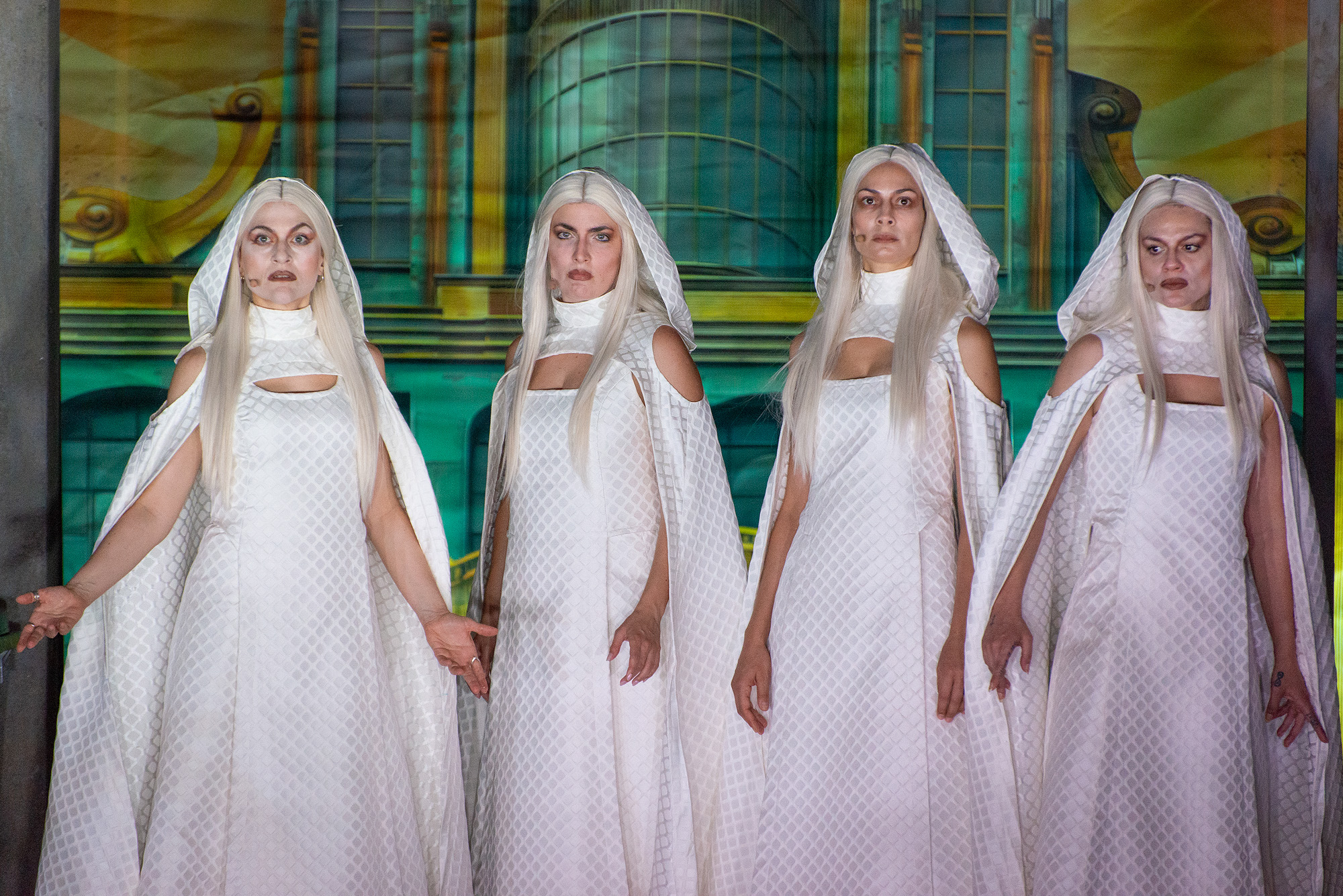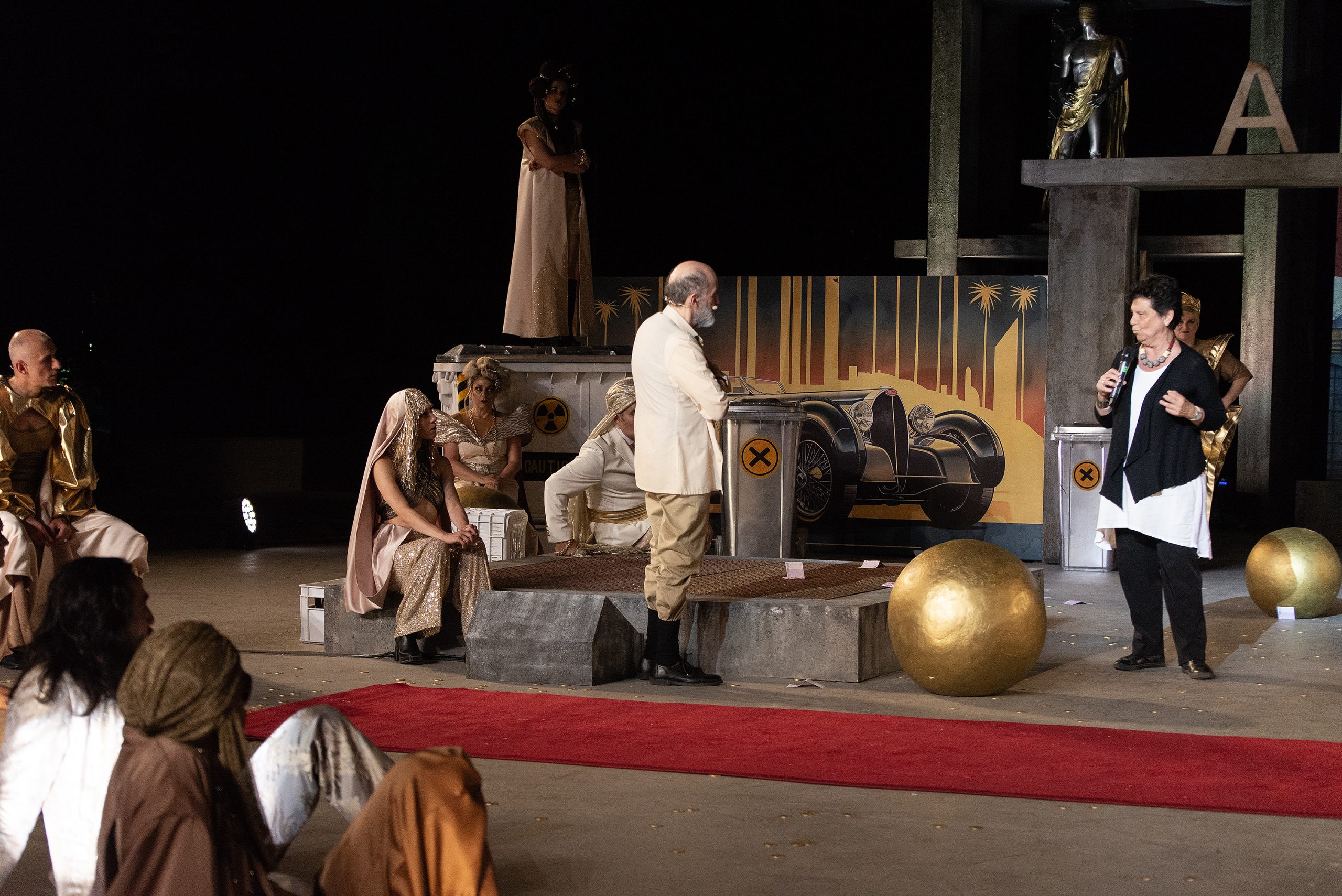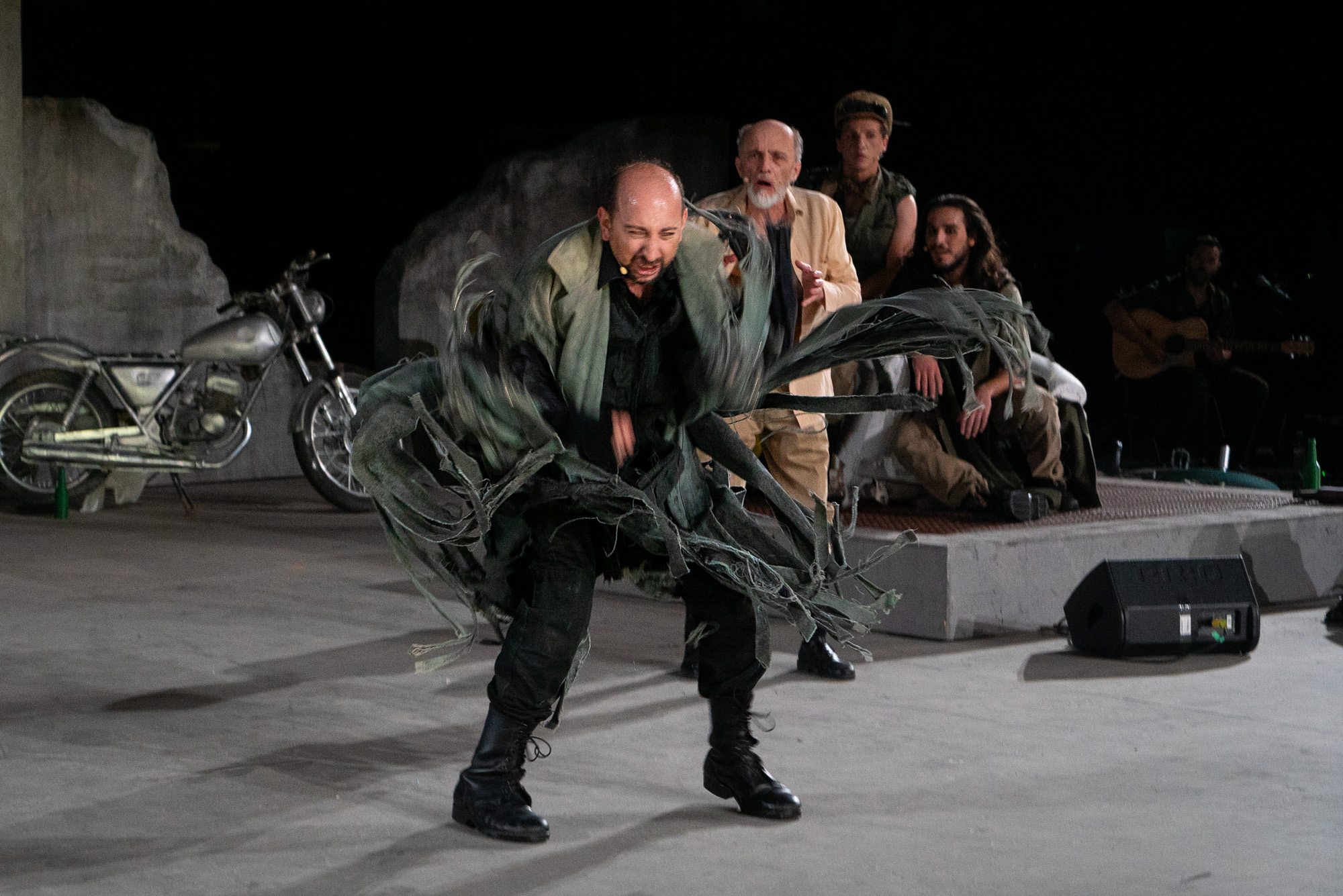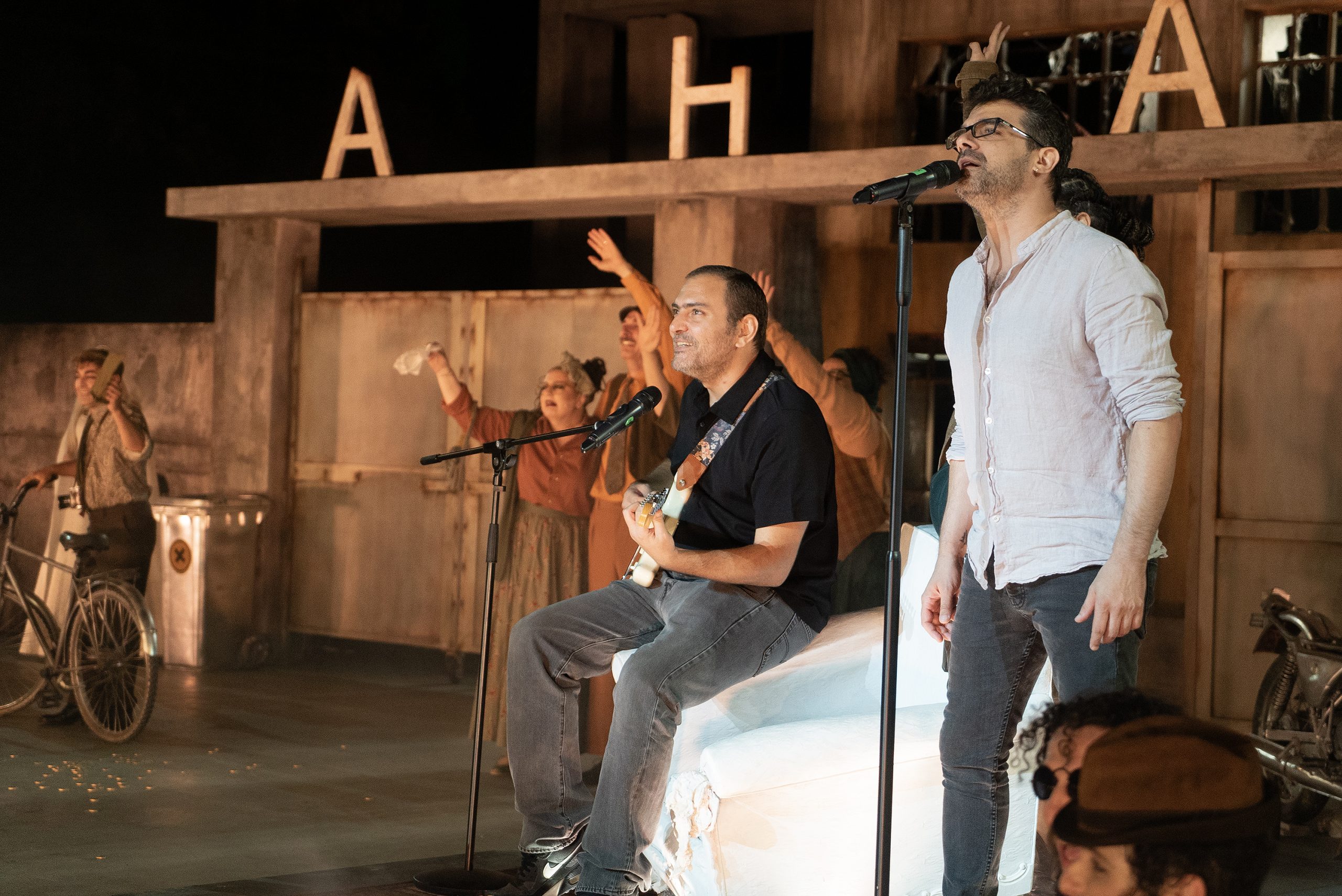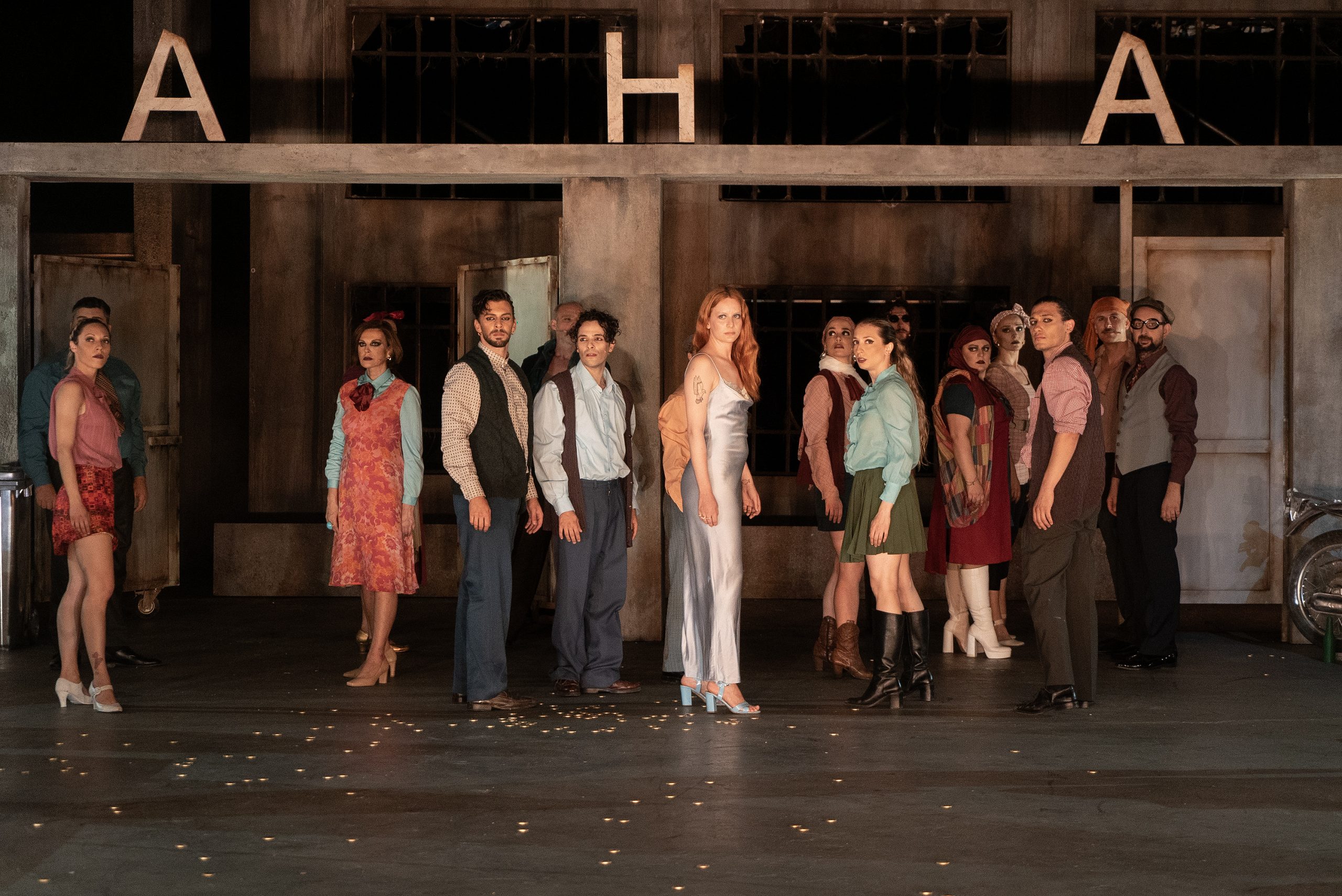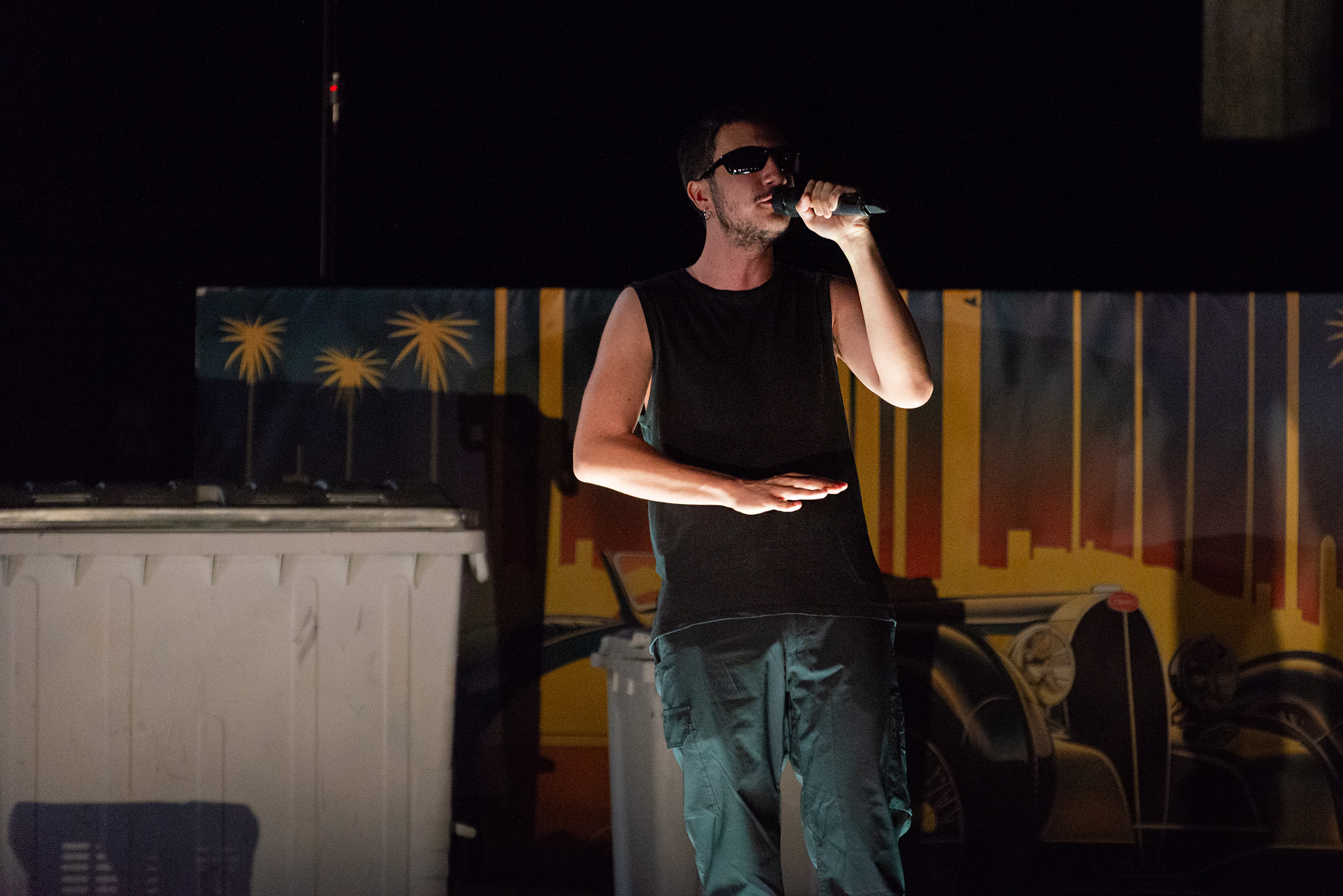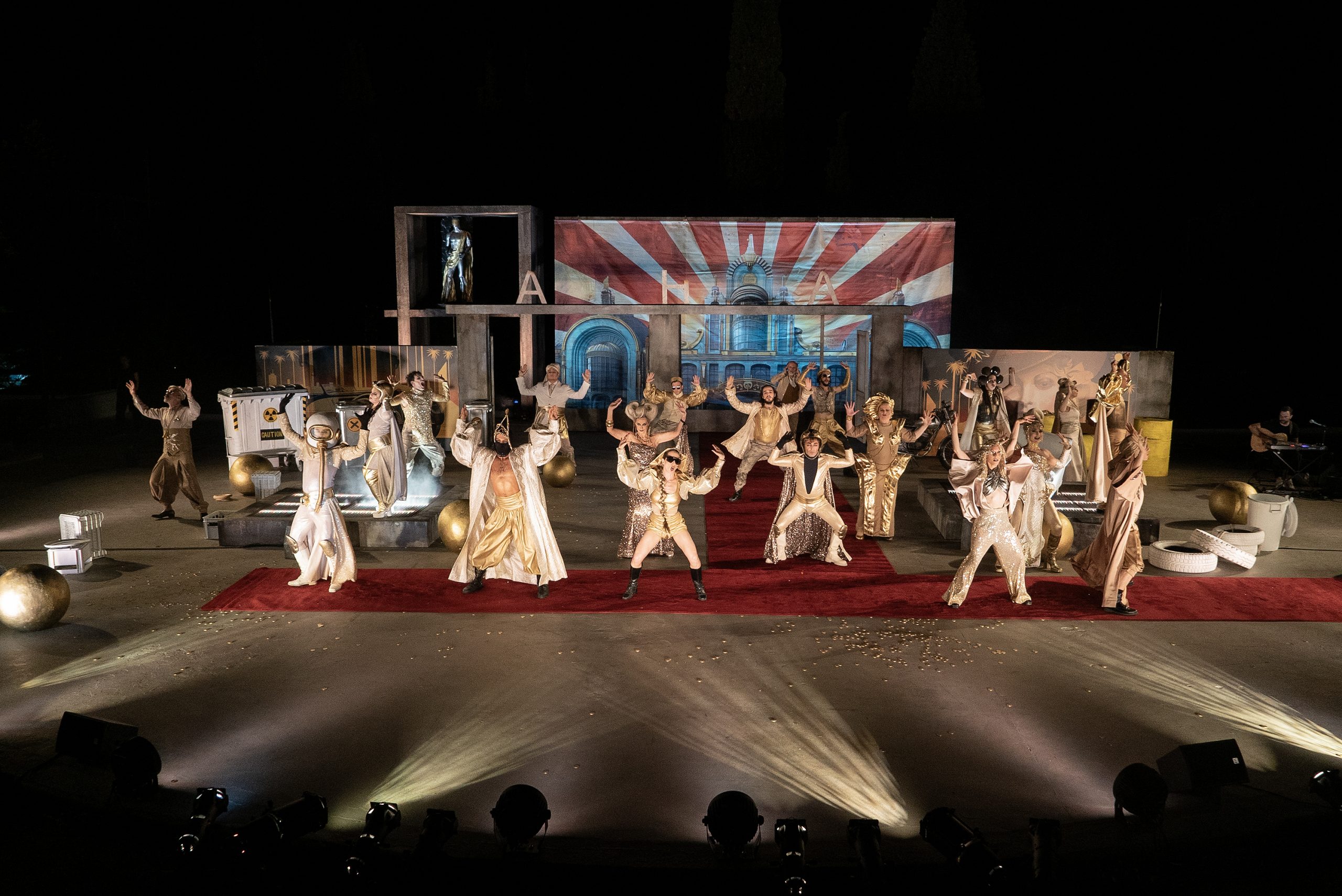National Theatre of Northern Greece – Giannis Kakleas
Plutus
by Aristophanes

We are in 388 BC. The Peloponnesian War has ended with the Athenians left crashed and defeated, which marked the end of the Athenian hegemony. The honest Chremylus, a poor Athenian peasant, Aristophanes’ alter ego, is experiencing the new reality in a traumatic way: social values, ideas, and morals have fallen away.
The lack of resources and social justice, as well as the fear of impoverishment, terrify this romantic utopian, especially for his child’s future. He resorts to the Oracle of Delphi posing the agonising question ‘what can I do to ensure a secure future for my child?’. The oracle tells him to take care of the first helpless person he meets on his way. This is none other than the god Plutus, who generously gives away gold, money, and all material goods Chremylus and the whole society has dreamt of! They are all rich now! Their dream has come true. But deep down this dream turns out to be a test: in the absence of social cohesion and solidarity, self-awareness, and social conscience, how can the common good be served?
Almost 2,500 years later, the Aristophanic question remains relevant. Giannis Kakleas, who, in addition to directing, is also the translator of the National Theatre of Northern Greece’s production, notes: ‘Our poet, in his own, uniquely satirical manner, shows us a way of managing material goods, but always with the interests of the Polis in mind –a Polis with just, honest, and virtuous citizens. Is this utopian? Possibly. Aristophanes however reserves the right to dream!’
Manos Vakousis, recently awarded with the Karolos Koun Grand Prize for Theatre, will be portraying Chremylus. The cast is joined by Alexandra Palaiologou. The musical part of the performance will be joined by Xatzifrageta and Nalyssa Green. The Professor of History at the University of Athens Maria Efthymiou appears on stage in the parabasis.
With Greek and English surtitles
Related Events
Duration 1 hour 55 minutes
Ancient Theatre of Epidaurus
- 19/07 until 20/07/2024 at 21:00
all events
Opera | Theatre | Dance | Premiere | Greek Debut
all venues

